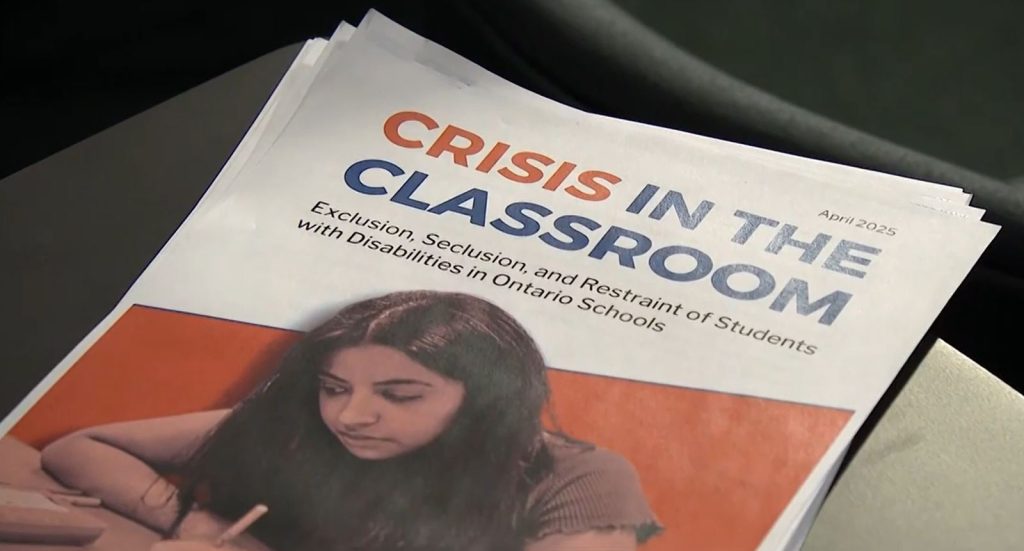In Ontario, students with special needs and disabilities are reportedly experiencing increased incidents of exclusion, isolation, and restraint, provoking urgent calls for the provincial government to allocate more resources to address these issues. This alarming trend is detailed in the “Crisis in the Classroom” report released by Community Living Ontario. The report is based on firsthand accounts and survey findings from over 500 parents of disabled students.
Among the alarming statistics shared in the report, 29% of parents indicated that their child had been isolated during school, 14% reported that their child had been physically restrained at least once, and 31% said their child had been sent home or told to stay at home. Shawn Pegg, the director of social policy and strategic initiatives with Community Living Ontario, emphasized the severity of the situation, stating, “It is almost incomprehensible that students with disabilities, some as young as five and six years old, are being physically restrained and isolated from their peers.” He highlighted that these issues have been recognized within the educational system for over a decade, prompting the need for action.
The report further indicates a significant lack of provincial guidance and data regarding the incidences of seclusion, restraint, and school exclusion. Despite the clear need for intervention, the Ontario government, led by Premier Doug Ford, continues to champion record spending on education. Education Minister Paul Calandra, while new to his role, echoed this sentiment, stating, “Now we’re providing significant resources for special education, but if more needs to be done, then we’ll do more.” He expressed a desire to understand the specific concerns raised in the report.
Among the recommendations put forth by Community Living Ontario are calls for increased access to qualified staffing, the implementation of more stringent provincial regulations, and the establishment of proper tracking and reporting mechanisms for incidents of isolation and restraint. Chandra Pasma, the Ontario NDP Education Critic, highlighted the struggles school boards face, noting, “Nearly every school board in the province is spending more on special education than what they are getting from this government.” This statement underscores the existing gaps in support and funding for special education programs.
Furthermore, the Ontario Human Rights Commission has established a policy on accessible education for students with disabilities, which affirms that all students, including those whose behavior may be disruptive, are entitled to receive accommodations in the educational environment. This policy aims to ensure equitable access to education for all students, emphasizing the need for appropriate resources and support systems. The urgent recommendations contained within the “Crisis in the Classroom” report serve as a crucial call to action for the Ontario government, educational institutions, and stakeholders to effectively address the needs of students with disabilities and special needs.











